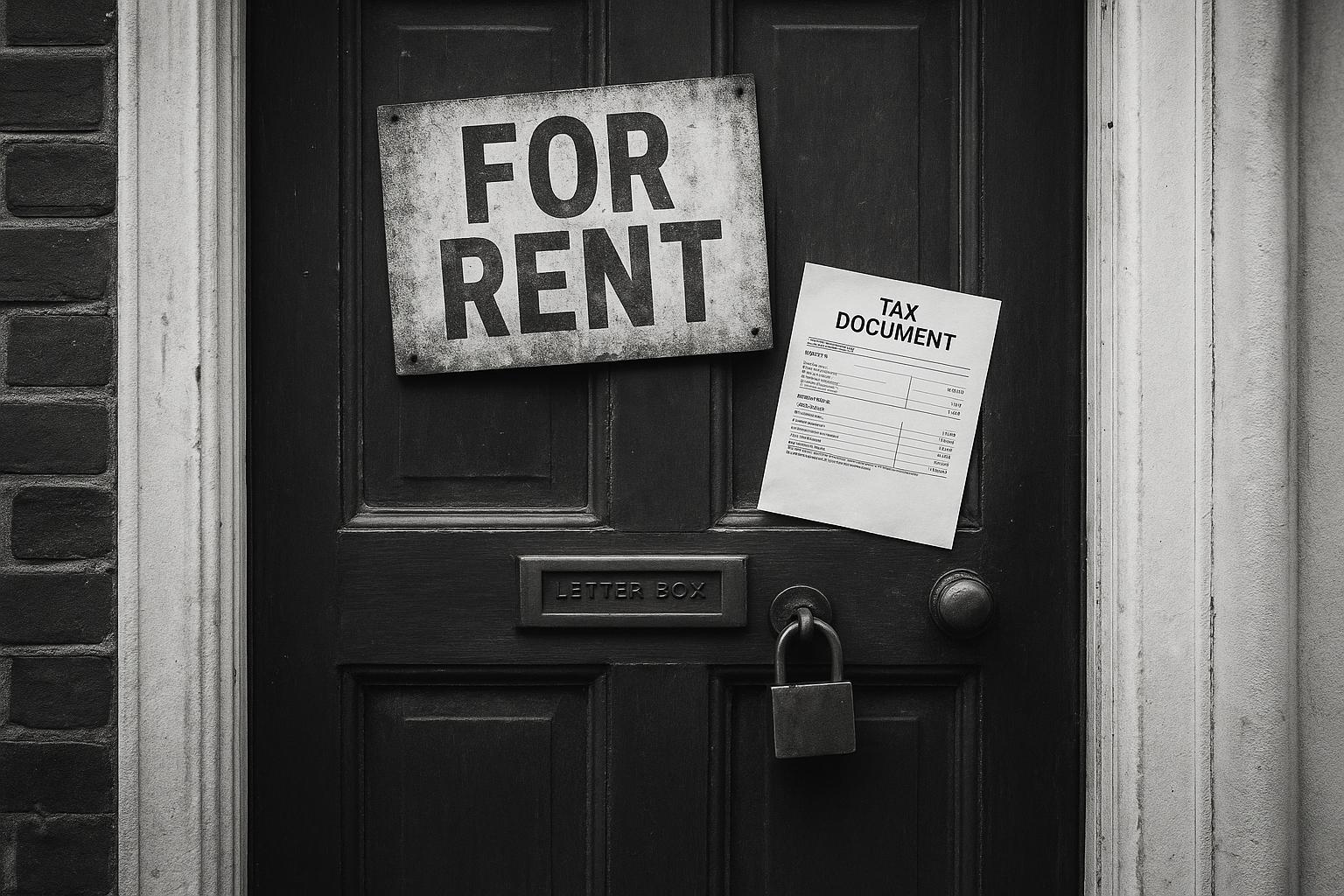The private rented sector in London has seen a 6% fall in available homes amid rising tax pressures, including a recent increase in the stamp duty surcharge. Landlord groups warn this could lead to half a million fewer rental properties over the next decade, intensifying the capital’s housing crisis and pushing for urgent tax reforms to boost supply.
The private rented sector in London is facing a significant contraction, with a 6% decline in available rental homes over the past year, falling from 1.14 million properties in 2023 to 1.07 million in 2024. This drop has raised alarm among landlord groups, who attribute the shrinking rental supply chiefly to rising tax burdens on additional properties, including a recent increase in the stamp duty surcharge from 3% to 5%. The National Residential Landlords Association (NRLA) has voiced strong opposition to this hike, warning that it could result in a net loss of up to half a million homes from the rental market in the coming decade, thereby worsening London’s chronic housing shortage.
The NRLA and allied industry bodies argue that the current tax landscape discourages landlords from investing in new rental homes and from bringing more than 38,000 long-term empty properties in the capital back into use. They advocate for a targeted tax reform package that includes scrapping the 5% stamp duty surcharge on homes acquired for rental purposes—an action they believe would stimulate increased supply by making it more financially viable for landlords to invest in such properties. Additionally, these groups call for enhanced support for energy efficiency upgrades in rental homes, a move aimed at reducing running costs for tenants and landlords alike.
Beyond fiscal reforms, the NRLA highlights the need for a more efficient justice system to expedite legitimate possession cases, which can often drag on and create uncertainty for landlords attempting to manage their portfolios. The collective concerns underscore a broader call for government action to balance taxation and regulation in a way that incentivises rather than inhibits private sector contributions to London’s housing stock.
The 2024 Autumn Budget introduced by Chancellor Rachel Reeves includes a broad £40 billion tax increase package focused on addressing the UK’s broader financial challenges. Notably, measures affecting the housing sector—such as the enhanced stamp duty surcharge on second homes—are seen by rental sector representatives as counterproductive to increasing housing availability. The budget also maintains existing capital gains tax rates on residential properties but raises concerns that escalating costs imposed on landlords may translate into higher rents and reduce lettings availability, hitting tenants hardest and exacerbating affordability issues in the capital.
While some view the commitment to restrict tenants’ right to buy social housing as a positive step, landlord organisations caution that such measures, without complementary policies to encourage private rental supply, are insufficient to resolve the multifaceted housing crisis. The NRLA and its partners thus continue to press the government for nuanced reforms that align taxation with housing supply goals, including abolishing the stamp duty surcharge and providing financial incentives to activate long-term vacant properties.
The ongoing tension between government tax policy and the demands of London’s rental market illustrates an urgent need for a balanced approach. Encouraging landlords to bring more homes to market, both by reforming taxes and streamlining legal processes, appears critical to alleviating the capital’s housing shortage, stabilising rents, and ultimately addressing the broader affordability crisis facing many Londoners.
 Reference Map:
Reference Map:
- Paragraph 1 – [1], [2], [3], [6]
- Paragraph 2 – [1], [2], [4], [5]
- Paragraph 3 – [2], [4]
- Paragraph 4 – [7], [3], [6]
- Paragraph 5 – [1], [5], [7]
- Paragraph 6 – [1], [2], [3], [4]
Source: Noah Wire Services
- https://www.standard.co.uk/business/landlords-tenant-rents-london-homes-b1238523.html – Please view link – unable to able to access data
- https://www.standard.co.uk/business/landlords-tenant-rents-london-homes-b1238523.html – This article discusses the decline in the number of private sector homes in London, which fell by 6% from 1.14 million to 1.07 million between 2023 and 2024. The National Residential Landlords Association (NRLA) attributes this decrease to factors such as increased stamp duty surcharges and calls for tax reforms to encourage landlords to bring long-term empty homes back into use. The NRLA also advocates for a more efficient justice system to expedite legitimate possession cases and financial support for energy efficiency upgrades in rental properties.
- https://www.nrla.org.uk/news/budget-24-stamp-duty-hike-will-hit-supply-of-homes-to-rent – The National Residential Landlords Association (NRLA) criticises the government’s decision to increase the stamp duty surcharge on additional properties from 3% to 5%. The NRLA warns that this hike could lead to a net loss of half a million homes from the rental market over the next decade, exacerbating the housing supply crisis. The association urges the Chancellor to reconsider this measure, emphasising the need for policies that support investment in rental housing to meet tenant demand.
- https://www.nrla.org.uk/news/abolishing-stamp-duty-housing-supply-crisis – The National Residential Landlords Association (NRLA), along with industry groups Propertymark, the Large Agents Representation Group (LARG), and Goodlord, calls for the abolition of the 3% stamp duty levy on rental homes. They argue that removing this levy would encourage landlords to invest in bringing long-term empty homes back into use and increase the net supply of housing, addressing the chronic shortage of homes to let and benefiting renters.
- https://www.standard.co.uk/business/money/landlords-call-for-budget-tax-breaks-to-boost-supply-and-control-rents-b1188328.html – Organisations representing the private rental sector, including the National Residential Landlords Association (NRLA), Propertymark, Goodlord, and the Large Agents Representation Group (LARG), have called on Chancellor Rachel Reeves to provide new tax breaks to help keep rents down and boost the supply of homes. They highlight the uncertainty landlords face and the severe shortage of homes, urging the government to reconsider the taxation of the private rented sector to address these issues.
- https://www.standard.co.uk/homesandproperty/homesandproperty/property-news/budget-2025-london-housing-winners-and-losers-b1191219.html – This article examines the impact of the 2025 Budget on London’s housing market. It highlights that while capital gains tax on residential properties remains unchanged, the additional two per cent stamp duty surcharge on top of the existing three per cent surcharge may deter landlords from re-entering the rental market. The article suggests that this could lead to higher rents and reduced availability of rental properties in London, affecting tenants and making it more difficult to save for a deposit to buy a home.
- https://www.ft.com/content/6864f60e-ea8e-490f-801f-a07e9a1060dc – The 2024 Autumn Budget, presented by Chancellor Rachel Reeves, introduces a significant £40bn tax increase aimed at addressing the UK’s financial issues. The measures primarily target businesses and the wealthy, with increased taxes on employment, shares, and pensions. Key changes include a 1.2 percentage point rise in employers’ national insurance and a reduction in the levy threshold from £9,000 to £5,000, likely affecting wages and prices. Capital gains tax rates will increase, affecting investors, with changes to reliefs impacting small business owners and entrepreneurs. Additionally, pension inheritance tax will be introduced from 2027, potentially affecting retirement savers’ plans. The non-dom regime will be abolished, replaced by a new residence-based system over four years. Property investors will face a higher stamp duty surcharge on second homes, potentially limiting rental property supply, while first-time buyers may benefit from the expiry of a stamp duty exemption scheme. The budget also includes restrictions on tenants’ right to buy social housing, supported by some campaigners but criticized for potentially oversimplifying housing market dynamics.
Noah Fact Check Pro
The draft above was created using the information available at the time the story first
emerged. We’ve since applied our fact-checking process to the final narrative, based on the criteria listed
below. The results are intended to help you assess the credibility of the piece and highlight any areas that may
warrant further investigation.
Freshness check
Score:
8
Notes:
The narrative presents recent data on the decline in available rental properties in London, with a 6% decrease from 1.14 million to 1.07 million between 2023 and 2024. This aligns with reports from the Royal Institution of Chartered Surveyors (RICS) indicating a continued decline in rental properties, with landlord instructions falling by 29% in the three months leading to October 2024. ([ft.com](https://www.ft.com/content/caece30c-f5cd-46cc-9fa7-87d4c0fb3bd9?utm_source=openai)) The report also references the National Residential Landlords Association (NRLA), which has been vocal about the impact of increased stamp duty on the rental market. ([nrla.org.uk](https://www.nrla.org.uk/news/budget-24-stamp-duty-hike-will-hit-supply-of-homes-to-rent?utm_source=openai)) The inclusion of recent data and references to current industry reports suggests a high freshness score.
Quotes check
Score:
9
Notes:
The narrative includes direct quotes from Ben Beadle, Chief Executive of the NRLA, expressing concerns about the housing crisis and the need for supportive policies. These quotes are consistent with statements made by Beadle in other recent reports, such as the NRLA’s response to the 2024 Budget. ([nrla.org.uk](https://www.nrla.org.uk/news/budget-24-stamp-duty-hike-will-hit-supply-of-homes-to-rent?utm_source=openai)) The consistency of the quotes across different sources indicates a high level of reliability.
Source reliability
Score:
9
Notes:
The narrative originates from the Evening Standard, a reputable UK newspaper known for its comprehensive coverage of business and housing issues. The inclusion of quotes from the NRLA, a well-established organisation representing landlords, further enhances the credibility of the report.
Plausability check
Score:
8
Notes:
The claims about the decline in available rental properties and the impact of increased stamp duty on landlords are consistent with recent industry reports. For instance, the NRLA has highlighted concerns that the 5% stamp duty surcharge could lead to a net loss of half a million homes from the rental market over the next decade. ([nrla.org.uk](https://www.nrla.org.uk/news/budget-24-stamp-duty-hike-will-hit-supply-of-homes-to-rent?utm_source=openai)) The narrative’s alignment with these findings suggests a high level of plausibility.
Overall assessment
Verdict (FAIL, OPEN, PASS): PASS
Confidence (LOW, MEDIUM, HIGH): HIGH
Summary:
The narrative presents recent and relevant data on the decline in available rental properties in London and the impact of increased stamp duty on landlords. The inclusion of consistent quotes from the NRLA and references to reputable sources supports the credibility of the report. The alignment with current industry reports and the plausibility of the claims further reinforce the overall assessment.













